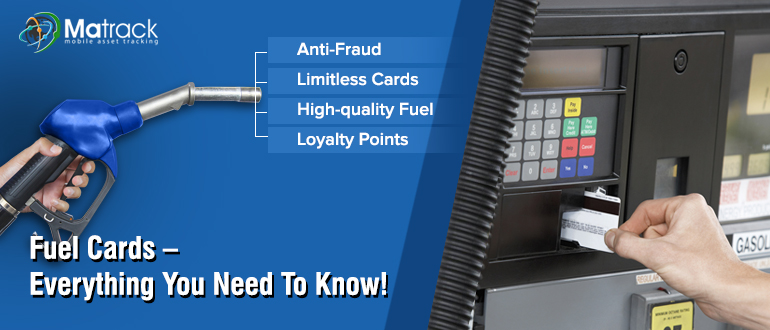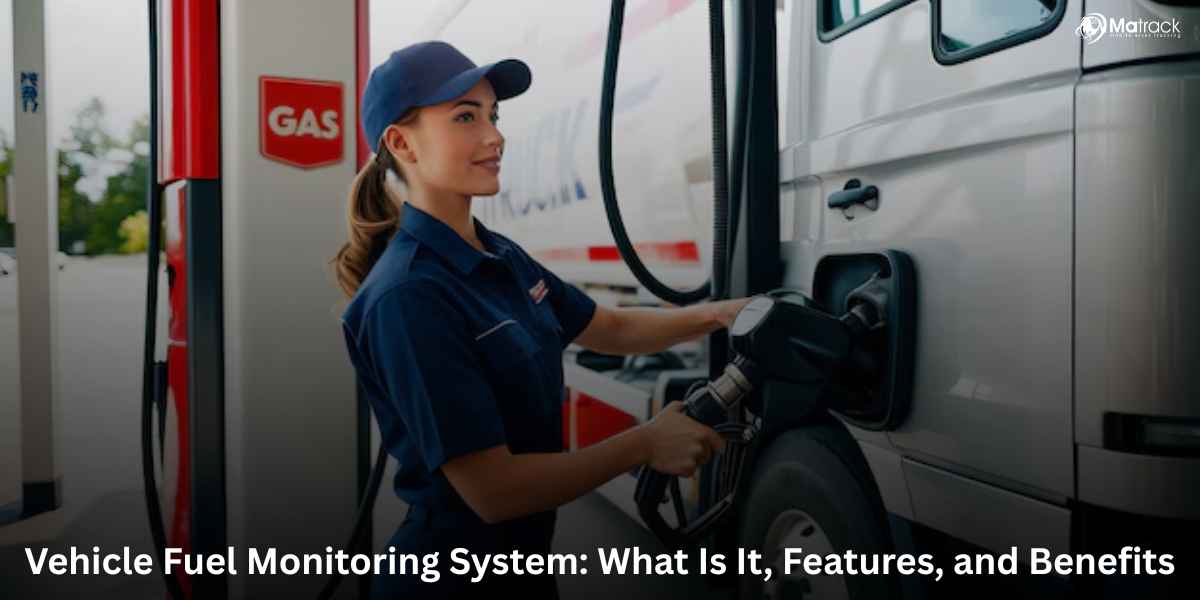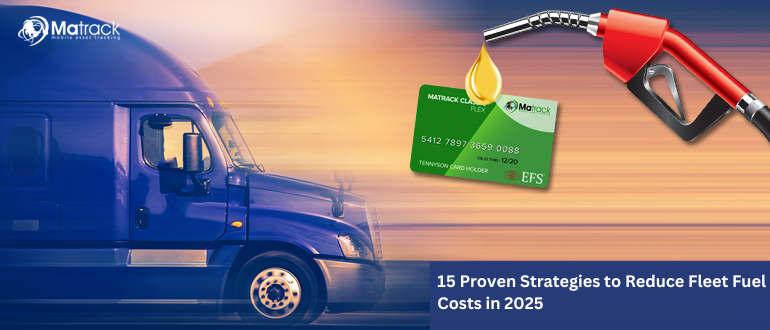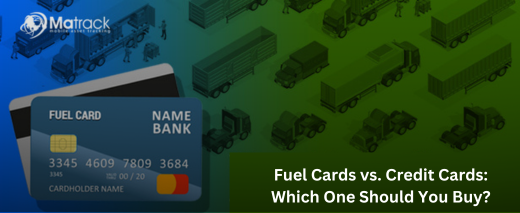Key Takeaways
- Fuel cards are specialized payment cards that help businesses and individuals save on fuel and track expenses efficiently.
- Different types of fuel cards, including branded, universal, prepaid, and fleet cards, offer various benefits depending on usage needs.
- Fuel cards provide cost savings, security, real-time tracking, and tax advantages, making them a valuable tool for fuel management.
- The Matrack Fleet Fuel Card offers wide acceptance, live fuel price tracking, and spending controls, making it ideal for fleet operations.
What Is a Fuel Card?
A fuel card is a payment card specifically designed for purchasing fuel and, in some cases, vehicle-related expenses such as tolls, maintenance, and roadside assistance. Unlike a traditional credit card, fuel cards often come with added features like detailed tracking, spending limits, and fuel discounts.
Businesses commonly use fuel cards to manage fleet expenses, track fuel consumption, and reduce administrative work related to reimbursements and receipts.
How Do Fuel Cards Work?
Fuel cards function similarly to credit or debit cards but are restricted to fuel-related purchases. Here’s how they work:
- Issuance & Activation – Businesses or individuals apply for a fuel card, which is linked to an account with predefined spending limits and usage policies.
- Usage at Fuel Stations – Drivers use the card to purchase fuel at participating fuel stations.
- Transaction Tracking – The fuel card provider records each transaction, detailing the amount spent, fuel type, location, and time.
- Billing & Payment – Businesses or cardholders receive regular statements summarizing all transactions, making it easier to track expenses and manage fuel costs.
Types of Fuel Cards
There are several types of fuel cards, each tailored to different user needs. The main types include:
Branded Fuel Cards
Branded fuel cards are issued by specific fuel companies, such as Shell, BP, ExxonMobil, or Chevron. These cards are accepted only at designated fuel stations.
Best For: Businesses or individuals loyal to a specific fuel provider.
Pros:
- Exclusive discounts and loyalty rewards.
- Wide acceptance at the provider’s stations.
- Tailored benefits like car wash and maintenance discounts.
Cons:
- Limited to a single brand’s stations.
- Less flexibility for drivers who travel in areas without the specific fuel brand.
Universal Fuel Cards
Universal fuel cards can be used across multiple fuel brands and fuel stations, offering more flexibility.
Best For: Businesses with fleets that travel across different regions.
Pros:
- Accepted at multiple fuel brands.
- Greater flexibility in choosing where to refuel.
- Consolidated reporting across different fuel providers.
Cons:
- Discounts may not be as high as branded cards.
- Higher fees compared to brand-specific fuel cards.
Prepaid Fuel Cards
Prepaid fuel cards work like gift cards, where users load a specific amount of money onto the card in advance.
Best For: Budget-conscious individuals and businesses that want to control spending.
Pros:
- No credit check required.
- Helps with budget management.
- Reduces the risk of overspending.
Cons:
- Limited by the preloaded amount.
- No credit or reward benefits.
Fleet Fuel Cards
Fleet fuel cards are designed for businesses managing multiple vehicles. They come with features like real-time tracking, driver spending controls, and integration with fleet management software.
Best For: Companies with small to large fleets.
Pros:
- Advanced tracking and reporting.
- Spend controls for drivers.
- Fraud prevention features.
Cons:
- Can have higher fees.
- Might require a corporate account.
Key Benefits of Fuel Cards
Cost Savings
Fuel cards help businesses and individuals save money by offering discounts on fuel purchases. They also reduce administrative costs by eliminating the need for manual reimbursements and tracking fuel receipts.
Expense Management & Tracking
Fuel cards provide detailed reports on fuel spending, helping businesses track and control expenses efficiently. Automated invoicing simplifies accounting by reducing paperwork and ensuring accurate financial records.
Improved Security
Fuel cards have built-in security features that limit purchases to specific fuel types, amounts, and locations, preventing unauthorized use. PIN protection and real-time transaction monitoring reduce the risk of fraud and misuse.
Enhanced Efficiency
Drivers can refuel quickly without needing cash or personal credit cards, saving time on the road. Businesses can monitor fuel consumption patterns, making it easier to optimize routes and reduce waste.
Tax Benefits
Some fuel card providers offer HMRC-approved invoices, making it simple for businesses to reclaim VAT on fuel expenses. This reduces tax-related paperwork and ensures compliance with government regulations.
How to Choose the Best Fuel Card
Selecting the right fuel card depends on various factors, including business size, fuel consumption, and preferred fuel stations. Consider the following:
Fuel Network Coverage
Check if the card is accepted at fuel stations your fleet regularly uses to avoid refueling issues. Decide between a brand-specific or universal fuel card based on your routes and travel needs.
Discount & Reward Programs
Compare the fuel discounts and cashback offers from different providers to maximize savings. Look for extra perks like maintenance, toll discounts, or loyalty rewards that add value.
Fees & Charges
Review any setup fees, transaction fees, or monthly charges before selecting a fuel card. Ensure that the potential fuel savings and benefits outweigh the costs associated with the card.
Reporting & Controls
Choose a fuel card that offers detailed tracking and reporting to monitor fuel usage and expenses. Features like driver-specific spending limits and real-time transaction alerts help prevent overspending.
Customer Support & Service
Select a provider with reliable customer support to handle issues efficiently. Check how easy it is to replace lost cards or resolve disputes in case of incorrect charges.
Matrack Fleet Fuel Card – Save More on Every Mile
Matrack Fleet Fuel Card helps fleets save at least $2,000 per vehicle by providing real-time fuel price updates. It routes drivers to the cheapest gas stations, saving up to 50 cents per gallon.
With acceptance at 95% of U.S. fuel stations, the card offers complete fuel management with real-time tracking and spending controls. It also simplifies IFTA reporting, making tax calculations quick and accurate.






